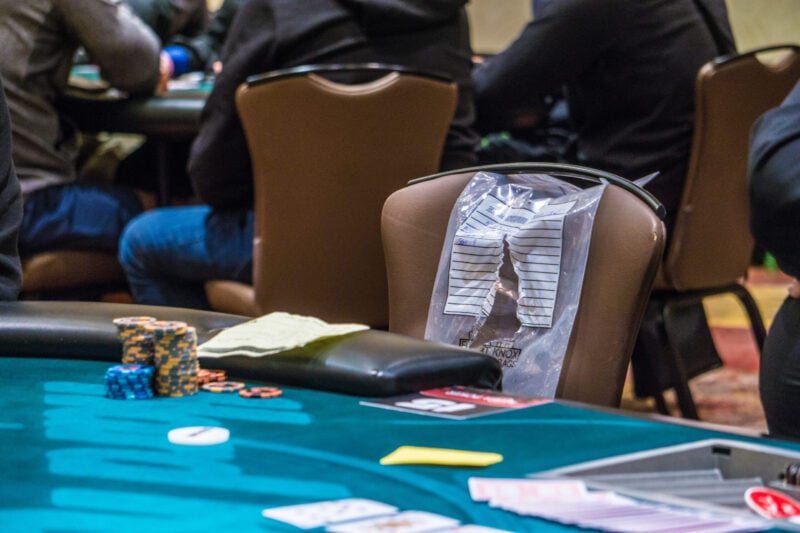A hearing was held on December 10 in the United States House of Representatives’ Subcommittee on Commerce, Manufacturing, and Trade. “The State of Online Gaming” was hosted by Representative Joe Barton (R-TX), who recently introduced and sponsored HR 2666, the Internet Poker Freedom Act of 2013. The bill seeks to regulate online poker on the federal level, though states and tribal authorities would have the option to withdraw. Amidst troubling winter weather, a significant number of Democrat and Republican Representatives listened to testimonies from six witnesses regarding the pros and cons of legalizing Internet gambling.
In Favor of Online Gaming
The first speaker was Geoff Freeman, President and Chief Executive Officer of the American Gaming Association. While not known for its past support of online gaming legalization and regulation, the AGA has recently come out strongly in favor of federal regulation as a preferred industry movement, rather than the state-by-state regulation currently happening.
Freeman spoke in favor of Barton’s bill and focused on the notion that prohibition does not work. After the United States attempted to crack down on gaming with the 1961 Wire Act and 2006 Unlawful Internet Gambling Enforcement Act, Freeman noted the results: “Last year, before a single state authorized legal online gaming, Americans spent nearly $3 billion on illegal, unregulated offshore gaming sites. To put that into further context, Americans accounted for nearly 10% of the entire $33 billion worldwide online gaming market in 2012.” With that, he discussed the benefits of regulation for consumers and the market alike.
John Pappas, Executive Director of the Poker Players Alliance was the third speaker and also in favor of the bill. Though he has testified at numerous hearings in the past, his words seemed to resonate particularly well on December 10. He spoke of the unrealistic goals of prohibitionists and reiterated the need for regulation to oversee consumer protections in an ever-growing industry.
Perhaps Pappas’ most powerful comments were made in the question/answer session that followed the testimonies. There he noted that three states are already regulating the industry, as are many European countries – all doing so successfully. Technology is working to prevent underage and problem gamblers, and geolocation is successful as well. He also noted that it is much easier to monitor problem gamblers on the Internet, where every single movement is tracked and recorded, than in land-based casinos where gamblers can go unnoticed and without any help.
In Opposition to Online Gambling
The first staunch opponent to regulation was Andrew Abboud, Vice President of Government Relations and Community Development at Las Vegas Sands, of which Sheldon Adelson is the head. Abboud requested the restoration of the 1961 Wire Act and the ban of all Internet gambling. He held up his cell phone during his explanation of casinos being available on every device, which he said is not optimal. He focused on the most vulnerable in society and said the availability and speed of online gaming should be a major concern.
Abboud was then called out in the question/answer session by numerous members of Congress. Ranking Member Rep. Jan Schakowsky called his comments hypocritical by noting that the Las Vegas Sands’ opposition to online gaming is in direct contrast with the mobile betting that is authorized along with the in-room gambling that customers are encouraged to do at the Venetian. Rep. Barton also attacked Abboud with slideshow evidence showing the mobile gaming options open to the Venetian’s customers.
The fourth speaker was Les Bernal, National Director of Stop Predatory Gambling. His tone was anti-gambling in general, saying that government regulation of any type of gambling – like lotteries – has not worked, as approximately 40 percent of revenue comes from problem gamblers. He claimed that funding was not given towards education as promised, and that gambling cannot be seen as a sustainable revenue source. He concluded that government does not belong in the gambling business and should not support or promote it.
Other Speakers Offer Insight
Dr. Rachel Volberg from the School of Public Health and Health Sciences at the University of Massachusetts Amherst also spoke on the concerns of problem gambling. Kurt Eggert, a Professor of Law at the Dale E. Fowler School of Law at Chapman University discussed customer protections that must be in place for a successful Internet gambling industry.
Both speakers conceded that the state-by-state online gambling endeavors seem to be implementing quite a few programs and modern technology to address any issues. They admitted, however, that more should be done if the federal government chooses to regulate Internet gambling. Volberg was especially concerned that problem gambling would not be sufficiently addressed in the Barton bill as it is written.
A Worthwhile and Informative Hearing
Rep. Barton can likely say that the hearing was a successful one. He found support from many fellow Representatives on the panel, and those with questions seemed to find sufficient answers. None was particularly hostile to the Internet gambling proposition, though many have concerns that they plan to address in writing following the hearing.
In this writer’s opinion and many of the poker media who followed the hearing on social media, those supporting HR 2666, especially Barton, Freeman, and Pappas, did particularly well with their arguments, the latter two providing concise answers and responses to concerns. Abboud, on the other hand, failed miserably in his attempt to justify Adelson’s strong opposition to online gambling. The hypocrisy of many of his arguments was demonstrated on multiple occasions throughout the hearing, with none of his arguments holding any weight.
As most will note, this hearing has little to do with any chance of Barton’s bill moving forward. There was no vote on the matter, nor any mention of a follow-up procedure to advance HR 2666. This was likely a hearing to justify political contributions and to keep the issue alive, though most anticipate that no movement will happen with the bill as a result.


